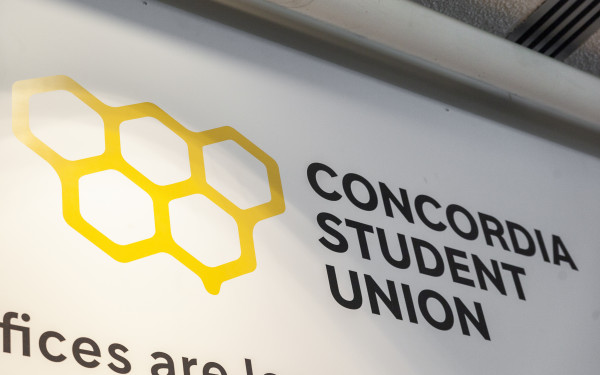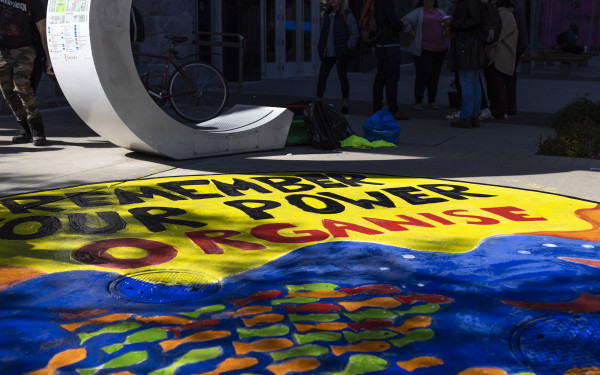Black Consciousness at Concordia
Why This University Needs an Interdisciplinary Black Studies Minor
Growing up Black, everything you discover about yourself, your history, your culture and your social condition is learned one of four ways.
First there is your family. Then as you get older, you’ve probably encountered a pseudo-activist group of Black friends or students who are hungry for more understanding on the state of the Black condition in our postcolonial world. Number three is the unforgiving and often inaccurate media. Unfortunately, school is last on the list. The history we are taught in our schools is often incomplete, biased or explained as some sort of haphazard footnote to the main concern of Western white living at the time.
It’s sad to say that the first time I was taught about Black History in an educational facility—out of the confines of Western egocentricity—wasn’t until I came to Concordia. Even then, it came secondary to the primary concern of the literature being studied as a work of art, rather than a learning tool for understanding the Black condition in the modern world.
However, this is something we at Concordia need. It’s for this reason that some students at Concordia have decided to advocate for a Black Studies minor.
Concordia University is home to 46,000 students engaged in over 500 academic programs at both undergraduate and graduate levels. Of this large community roughly 36,000 are undergraduates—48.8 per cent of which are under the Arts and Science faculty.
Being an Afro-Caribbean student myself, one could easily assume a minor in Race or Black Studies would take on an undeniable importance to me, but the truth is that the benefit of such a program would not discriminate on a basis of racial identification. It would also align with the university’s values. According to
Concordia’s core values and mission statement, the university states that “it dares to be different and draws on its diversity to transform the individual, strengthen society and enrich the world.”
In creating this minor, the university would allow for more representation and diversity in offered programs, in addition to providing an opportunity to act upon the core values and vision to which it holds dear.
Mary Esteve, an associate professor in the department of English who is advocating for the creation of the minor, explained the importance in having interdisciplinary studies.
“Instead of subsuming the study of Africa and the Black diaspora under a broad ethno-racial rubric, we think it’s better to establish a distinct program devoted to this subject matter,” she said. “We think this is important not only for the population of Concordia students who self-identify as Black (or people of color), but also for Concordia’s mission of critical inquiry into the culture, history and politics of modern society.”
Black studies wouldn’t be the first of its kind here at Concordia, where programs such as Irish Studies, Israel Studies and the First Peoples program are already up and running, fulfilling a great purpose. Race and the racialization of a people, more specifically Black people of all nationalities—as the diaspora has spread us around the globe—are highly relevant to the discourses of our present time.
In continuously subverting the stories of Black people, we as learners miss out on a wondrously relevant aspect of the world’s history that should not only be voiced but also highlighted.
There are currently 45 credits found throughout many disciplines at Concordia which could be potentially accredited towards this possible 24 credit interdisciplinary minor. Most of these courses fall under the departments of History, English literature, Women’s studies, Sociology, and Communications.
The courses offered are an amazing start, and have contributed to the budding sentiment amongst students that it is time for more. In the case of Concordia, the courses offered which could be attributed to this minor are mottled and disorganized according to some faculty and students, and thus would heavily benefit from being organized within a cohesive minor or major. Additionally, many students would love to have this area of study acknowledged on their degrees.
Our academic pursuits should have the capacity to respond to the world that we live in, that we may be equipped with reasoning and knowledge to live effectively within it, if not change it for the better. We are far behind other educational institutions in this area—the University of Toronto, for example, has been offering a full major in African studies for years.
Although tempted to add further statistics in regards to Black studies across Canada, I have not, because regardless of whether other institutions have chosen to adhere to this demand or not, it doesn’t make it any less necessary to Concordia. On one side, if Canadian facilities lack programs on Black studies, it provides
Concordia the opportunity to become a forerunner in its development. On the other, there lies a demand for our university to keep up.
Although this minor may not materialize during my time at Concordia, the cycle of thought and thirst for knowledge sprouts every semester with our new students, who would greatly benefit from the creation of this minor.
If you would like to get involved there are three steps to consider: send a letter, get connected and stay informed. Sending letters to our academic dean for ASFA and program directors in History, Literature and the other programs previously mentioned would show support and voice the interest of our students—this is crucial, considering many never thought this type of minor was even a possibility.
Stay connected with us through our Facebook page and Afro-Caribbean clubs so we can mobilize if needed.
Lastly, stay informed and keep an eye out for this minor, so that when it comes, you can be a part of something new that will be a staple of diversity at Concordia.
It is important to remember a Black Studies minor is not only for Black students but, as previously mentioned, can be beneficial to the entire student body.
Gaining further understanding of the world and those within it helps us to foster awareness and open thinking for an increasingly diverse, interconnected and globally minded socioeconomic community.
We expect great things from making this minor available, not only for Concordia’s academic portfolio, but also for its implications on our social community here in Montreal. If we can reform our minds we can reform our world.
Sincerely,
A Proud Black Student


_600_832_s.png)

_600_375_90_s_c1.jpg)


